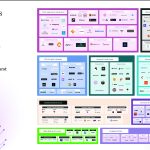
The future is full of unknowns, and while that can feel intimidating, it’s also an opportunity to take control where you can. Future-proofing your finances is about creating a plan that’s flexible enough to adapt to changes yet strong enough to provide stability. It’s not about predicting every possible outcome but preparing yourself so that when challenges or surprises come your way, you’re ready. For example, if you’re working on credit card debt relief, you’re not only addressing your current financial stress—you’re also laying the groundwork for a more resilient future.
Building a Solid Emergency Fund
An emergency fund is one of the cornerstones of financial resilience. Life happens, whether it’s unexpected medical bills, car repairs, or sudden job changes. Without savings to fall back on, these events can spiral into debt quickly. Aim to save at least three to six months of essential living expenses. If that feels overwhelming, start small. Even setting aside $25 a week builds momentum. Over time, your emergency fund becomes a buffer that gives you peace of mind and the flexibility to handle life’s surprises without derailing your long-term plans.
Managing Debt Wisely
Debt can be one of the biggest obstacles to future-proofing your finances. High-interest debt, particularly credit card balances, drains resources and limits your options. Tackling debt strategically gives you freedom. Whether you use the snowball method to pay off smaller debts first or the avalanche method to prioritize higher interest rates, the key is consistency. If your debt feels overwhelming, exploring structured options like Credit Card Debt Relief may help you regain control. The less debt you carry, the more room you have to save, invest, and respond to unexpected changes.
Diversifying Income Sources
Relying on a single paycheck can feel risky, especially in uncertain economic times. Future-proofing your finances means finding ways to diversify income. This might include freelance work, side hustles, passive income streams, or even exploring career development that opens doors to higher-paying opportunities. Extra income doesn’t just increase your cash flow—it gives you more flexibility to handle setbacks, boost savings, and invest in your long-term goals. Diversification ensures that your financial health isn’t tied to a single source of income.
Investing for the Long Term
Investing is about more than growing wealth—it’s about building resilience. By putting your money into assets that have the potential to grow over time, you give yourself a cushion against inflation and rising costs of living. Future-proofing your finances doesn’t require risky bets; it requires steady, thoughtful investing. Spreading your investments across different types of assets—such as stocks, bonds, or real estate—reduces risk and increases adaptability. Consistent contributions, even small ones, compound over time and can provide a strong foundation for the future.
Adapting Your Budget to Life Changes
Budgets aren’t static. As your circumstances evolve—whether through career shifts, family growth, or lifestyle changes—your budget should adapt with you. Review your budget regularly and adjust as needed. This keeps your financial plan aligned with your goals and ensures you’re making the most of your resources. An adaptable budget helps you stay in control even as life changes, making it a key tool in future-proofing your finances.
Planning for Healthcare and Retirement
Healthcare costs and retirement planning are two areas that often catch people off guard. Thinking ahead helps you avoid financial strain later. Consider options like health savings accounts (HSAs) if available, which let you save for medical expenses with tax advantages. For retirement, start contributing as early as possible, even if it’s a small amount. Over time, these contributions grow and provide security for your later years. Preparing for these big-ticket items ensures that your financial future is not only stable but sustainable.
Strengthening Financial Knowledge
The more you know about personal finance, the more confident and adaptable you become. Staying informed about trends, tools, and strategies equips you to make better decisions when circumstances change. Financial literacy helps you spot opportunities and avoid costly mistakes. Whether through books, courses, or trusted online resources, building your financial knowledge is one of the most valuable investments you can make in yourself.
Maintaining a Growth-Oriented Mindset
Perhaps the most important part of future-proofing your finances is your mindset. Challenges will arise, and circumstances will shift, but if you approach them with adaptability and confidence, you’ll find ways to stay on track. A growth-oriented mindset encourages you to see financial obstacles not as dead ends but as chances to learn and improve. This perspective gives you resilience and ensures that your financial plan evolves with you rather than against you.
Future-proofing your finances is about preparation, not perfection. By building an emergency fund, managing debt, diversifying income, investing, and staying adaptable, you create a foundation that can withstand uncertainty. Pair these strategies with continuous learning and a growth mindset, and you’ll not only protect your finances but also position yourself to thrive no matter what the future brings. Whether you’re paying off debt, saving for retirement, or just starting to plan, the steps you take today are investments in tomorrow’s stability and success.












